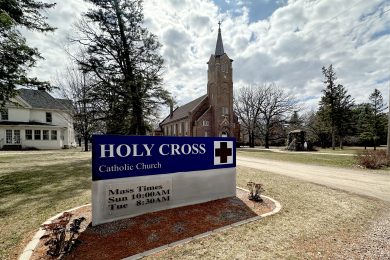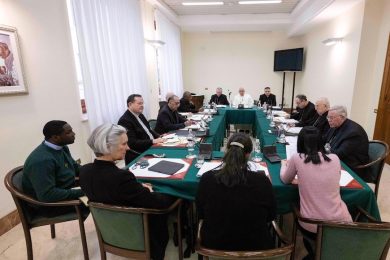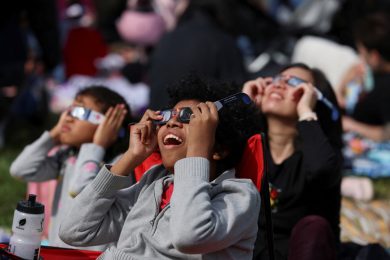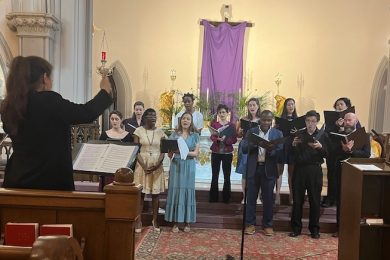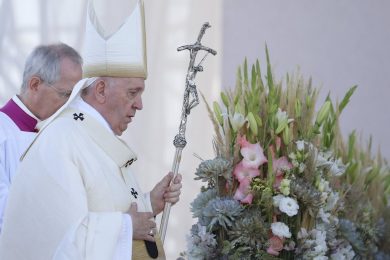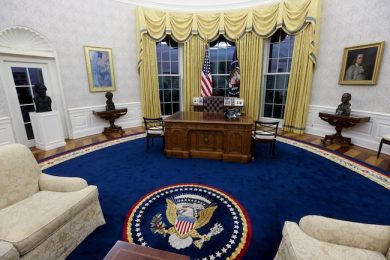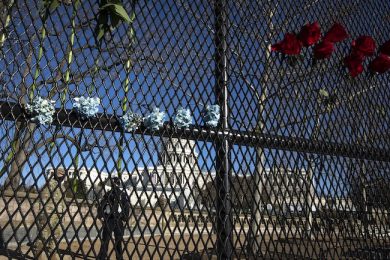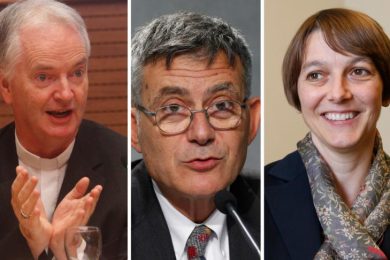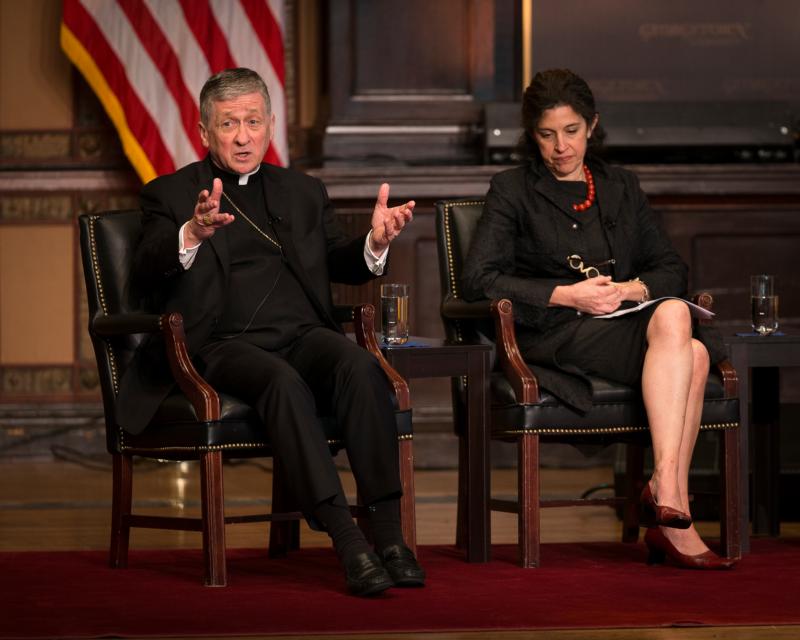The pope’s Sept. 12-15 visit to Slovakia and Budapest, while seemingly low-key, waded into issues that have divided the world and the Catholic Church.
Bridge over troubled waters: Papal trip tests limits of being a ‘pontifex’
USCCB launches initiative to address polarization in U.S. society
A USCCB initiative called “Civilize It: A Better Kind of Politics,” is designed to move forward the kind of conversations that people need to be having to overcome divisions.
Greg Erlandson: A new day and an offer to engage
“Let’s accomplish what we can and fight for what we must.”
A plea to my fellow Catholics
“It’s time for our faith to drive our politics, instead of the other way around.”
Greg Erlandson: Where we go from here
“Right now, we can’t fix everything that is broken in this country. But we Catholics can show a way forward.”
Father Ron Rolheiser: Our deep failure in charity
St. Eugene de Mazenod left us with these last words as he lay dying: “Among yourselves, charity, charity, charity.” I don’t always live that, though I wish I could, especially today.
Listen, respond to modern world, Vatican panel tells Catholic media
When Vatican communication leaders met virtually with U.S. and Canadian Catholic journalists and communication leaders June 30, they urged the group to keep up their work, think of new ways to have a broader reach and not get weighed down by society’s current polarization.
Panel looks at how Catholic social teaching can address polarization
WASHINGTON (CNS) — Sister Teresa Maya grew up hearing her “abuela” say, “People understand each other by speaking to one another.”
In her grandmother’s wisdom, she said, lies a way to address the polarization that seems to affect every aspect of U.S. society today.
Fostering “encuentros,” or encounters, on the personal level and people “really being interested in the other side of the story” would go a long way to encourage folks with different opinions to dialogue about all manner of issues with civility, she told an audience at Georgetown University June 4.
Sister Maya, a Sister of Charity of the Incarnate Word from San Antonio, is president of the Leadership Conference of Women Religious. She was one of four speakers at the public session of a June 4-6 invitation-only conference on “Though Many, One: Overcoming Polarization Through Catholic Social Thought.”
Organizers said the conference was meant to be a starting point to bring about Pope Francis’ vision of the church responding to human hurts and social challenges by living out the joy of the Gospel.
Joining Sister Maya on the panel were Helen Alvare, professor of law at George Mason University’s Antonin Scalia Law School in Arlington, Virginia; Chicago Cardinal Blase J. Cupich; and Los Angeles Archbishop Jose H. Gomez, vice president of the U.S. Conference of Catholic Bishops.
Moderator John Carr, director of the Initiative on Catholic Social Thought at Georgetown, asked the audience to “check your impulses” at the door as far as trying to decide which panelists were “conservative” or “liberal.”
He asked them to consider who among the speakers “has stood up for the dignity and lives of the unborn” and for women, the vulnerable, immigrants, the poor and families and “against violence in our communities.”
“It’s really a trick question. Every one of these people has stood up for” all those groups, said Carr.
He asked the speakers what they see as “the major cause or cost of polarization” in the country and how the principles of Catholic social thought could help everyone work for the common good.
“The fear of the other has poisoned our souls. … We’ve allowed it to divide us,” said Sister Maya, who noted that as an immigrant herself, from Mexico, she brings “a migrant’s view to this conversation.”
She grew up with a deep fascination of the American idea that all people are created equal, that life, liberty and the pursuit of happiness are human rights that cannot be taken away. In entering religious life, she said, she was convinced Jesus held the clues to create a world where these truths would hold for all.
She still believes in this “narrative of human rights” but said it “is threatened because we live in a polarized society.”
“We stay in our bubbles, with people we know,” feeding our fears, when “we must realize we breathe the same air,” she said. “Unless you can get to know the other, it can justify the most terrible thing. … The antidote to fear is hope.”



